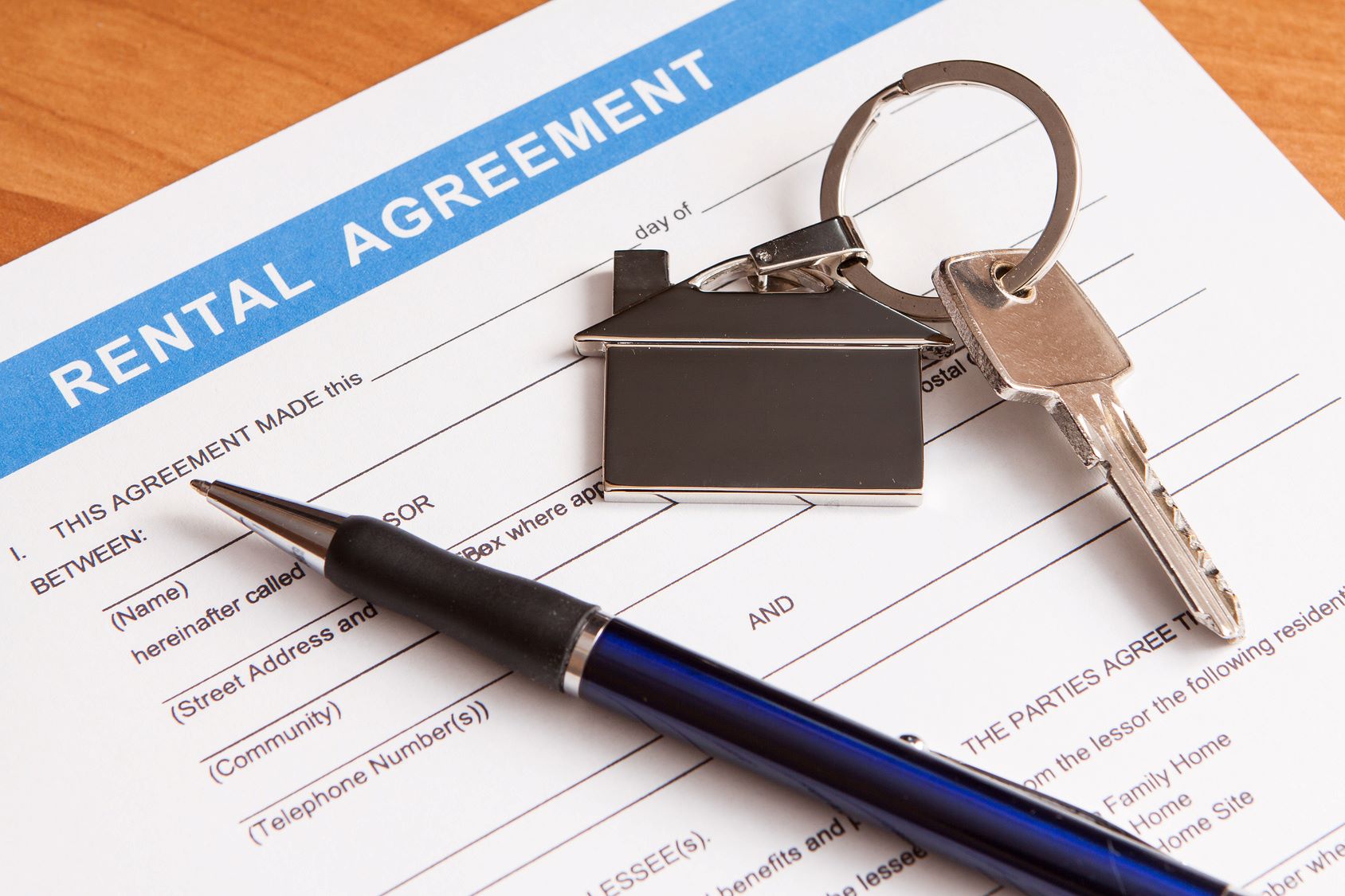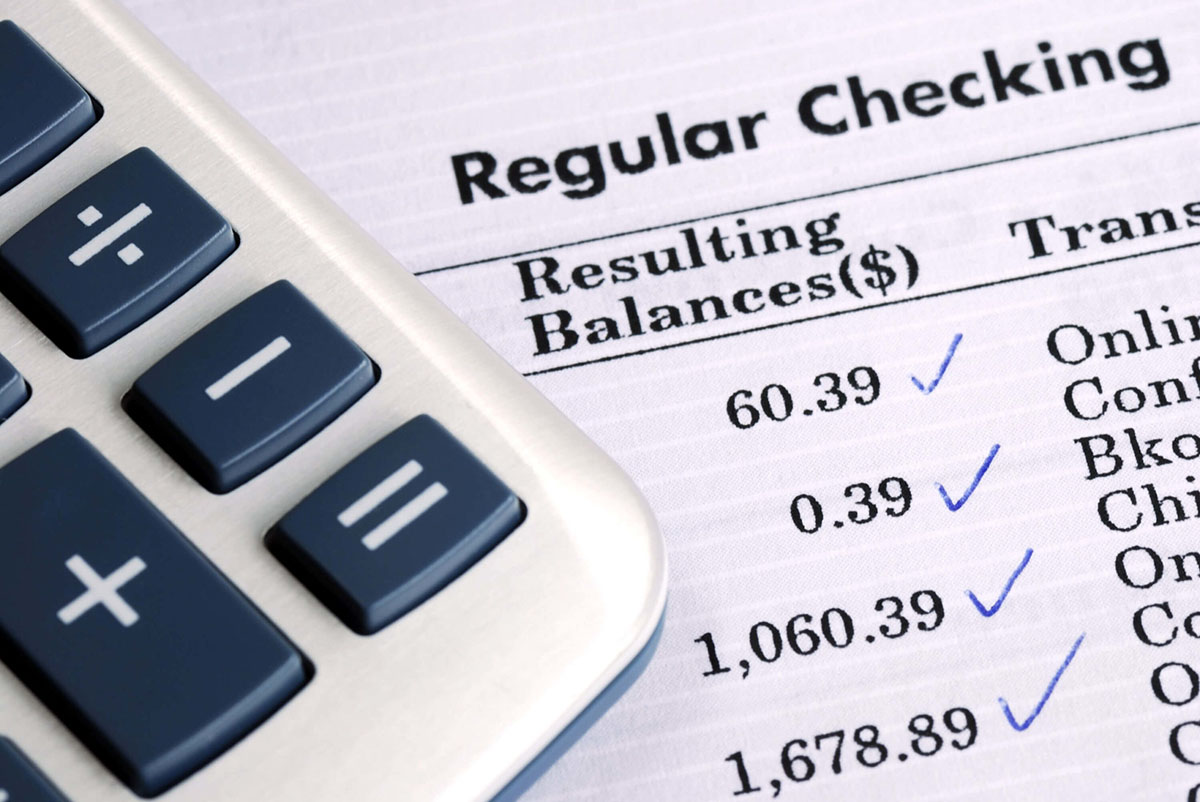

Finance
How Can I Get Apartment With Bad Credit
Published: January 4, 2024
Looking for an apartment but have bad credit? Discover the best finance options to help you secure an apartment despite your credit history.
(Many of the links in this article redirect to a specific reviewed product. Your purchase of these products through affiliate links helps to generate commission for LiveWell, at no extra cost. Learn more)
Table of Contents
- Introduction
- Understanding the Impact of Bad Credit on Apartment Applications
- Steps to Improve Your Chances of Renting an Apartment with Bad Credit
- Check and Correct Any Errors on Your Credit Report
- Offer a Larger Security Deposit
- Provide Proof of Stable Income
- Get a Co-Signer or Guarantor
- Offer to Pay Rent in Advance
- Provide Strong Rental References
- Look for Apartments with Flexible Credit Requirements
- Consider Subletting or Renting from Private Landlords
- Conclusion
Introduction
When it comes to renting an apartment, having bad credit can make the process more challenging. Landlords often rely on credit scores to assess an applicant’s financial reliability and determine whether they will be a responsible tenant. However, having bad credit doesn’t mean you won’t be able to find a suitable apartment.
In this article, we will explore strategies and tips to help you secure an apartment, even with bad credit. From understanding the impact of bad credit on apartment applications to steps you can take to improve your chances, we will provide valuable insights and guidance.
While bad credit can be a hurdle, it’s important to remember that it doesn’t define your ability to be a responsible tenant. By being proactive and demonstrating your commitment to honoring your rental obligations, you can overcome the challenges and find a place to call home.
So, whether you’re currently struggling with bad credit or have experienced issues in the past, read on to discover the steps you can take to increase your chances of getting an apartment with bad credit.
Understanding the Impact of Bad Credit on Apartment Applications
When applying for an apartment, landlords often request authorization to perform a credit check. This is because they want to assess the financial responsibility and reliability of prospective tenants. A credit check provides them with information about your credit history, including your credit score, outstanding debts, and payment history.
Having bad credit can significantly impact your apartment applications in several ways:
- Limited options: Many landlords have strict criteria when it comes to credit scores, and they may reject applicants with low scores outright. This can limit your choice of apartments and make it more challenging to find a suitable place to live.
- Higher security deposits: Landlords may require higher security deposits from applicants with bad credit as a way to mitigate the risk of potential missed payments or damages.
- Higher interest rates: If you’re looking to rent from a property management company that offers financing options, such as rent-to-own or lease-to-own programs, you may face higher interest rates if you have bad credit.
- Cosigner or guarantor requirements: Landlords may ask for a cosigner or guarantor with good credit to ensure that the rent will be paid in case you default on payments.
It is crucial to understand the impact of your credit on your apartment applications. By doing so, you can take proactive steps to improve your chances of approval and make the necessary arrangements to accommodate any potential obstacles.
Steps to Improve Your Chances of Renting an Apartment with Bad Credit
If you have bad credit and are searching for an apartment, don’t lose hope. While the process can be more challenging, there are steps you can take to increase your chances of finding a place to rent. Here are some strategies to consider:
- Check and Correct Any Errors on Your Credit Report: Before starting your apartment search, obtain a copy of your credit report and carefully review it for any errors. If you find any inaccuracies, dispute them with the credit bureaus to have them corrected.
- Offer a Larger Security Deposit: To alleviate concerns about your creditworthiness, offer to pay a larger security deposit. This shows the landlord that you are committed to fulfilling your rental obligations.
- Provide Proof of Stable Income: A consistent and reliable source of income can help offset the impact of bad credit. Provide documents such as pay stubs, bank statements, or employment contracts to demonstrate your ability to afford the rent.
- Get a Co-Signer or Guarantor: Enlist the help of a trusted friend or family member with a good credit score to act as a co-signer or guarantor on the lease. This guarantees the landlord that the rent will be paid if you are unable to fulfill your obligations.
- Offer to Pay Rent in Advance: If your budget allows, consider offering to pay several months of rent in advance. This demonstrates your commitment and financial stability to the landlord.
- Provide Strong Rental References: If you have a history of being a responsible tenant, provide references from previous landlords highlighting your timely rent payments and good behavior.
- Look for Apartments with Flexible Credit Requirements: Some apartments may have more lenient credit requirements or be willing to work with tenants who have bad credit. Expand your search and consider reaching out to smaller property management companies or independent landlords.
- Consider Subletting or Renting from Private Landlords: Subletting or renting directly from private landlords may provide more flexibility in terms of credit requirements. These landlords may be more open to negotiating terms with prospective tenants.
By following these steps and demonstrating your commitment to being a responsible tenant, you can improve your chances of renting an apartment, even with bad credit. Remember to be transparent with landlords about your situation and provide any necessary supporting documentation that showcases your ability to fulfill your rental obligations.
Check and Correct Any Errors on Your Credit Report
One of the first steps you should take when dealing with bad credit while searching for an apartment is to obtain a copy of your credit report from the major credit bureaus, such as Equifax, Experian, or TransUnion. Reviewing your credit report is crucial because it allows you to identify any errors or discrepancies that may be negatively impacting your credit score.
Here’s how you can check and correct any errors on your credit report:
- Request a Free Copy of Your Credit Report: By law, you are entitled to a free copy of your credit report from each of the major credit bureaus once a year. Visit AnnualCreditReport.com to request your reports and ensure you receive them from all three bureaus.
- Thoroughly Review Your Credit Report: Carefully go through your credit report line by line, checking for any errors or inaccuracies. Look for accounts that don’t belong to you, incorrect late payment records, or outdated information that should have been removed.
- Dispute Any Errors with the Credit Bureaus: If you come across any errors, it’s essential to take action to correct them. File a dispute with the credit bureau reporting the error, including supporting documentation if available. The credit bureau will investigate the dispute and make corrections if necessary.
- Follow Up on the Dispute: After filing a dispute, keep track of the progress and follow up with the credit bureau to ensure that the necessary corrections are made. This may involve providing additional information or documentation to support your dispute.
- Monitor Your Credit Report Regularly: It’s good practice to monitor your credit report regularly, even after disputing errors. This helps you stay aware of your credit status and quickly address any future inaccuracies or issues that may arise.
Correcting errors on your credit report can have a positive impact on your credit score, potentially improving your chances of renting an apartment. It’s important to be diligent in the correction process and provide all necessary documentation to support your dispute.
Remember, it may take some time for the credit bureaus to investigate and update your credit report. Therefore, it’s advisable to check your credit report well in advance of apartment hunting to allow sufficient time for any corrections to take effect.
Offer a Larger Security Deposit
If you have bad credit, one way to alleviate a landlord’s concern about your ability to pay rent on time is by offering a larger security deposit. A security deposit serves as a form of financial protection for the landlord, as it can be used to cover unpaid rent or damages to the property.
Here are some key points to consider when offering a larger security deposit:
- Research State Laws: Before offering a larger security deposit, familiarize yourself with the laws in your state regarding security deposit limits. Some states have specific regulations on the maximum amount a landlord can request as a security deposit.
- Determine an Appropriate Amount: Assess your financial situation and determine how much extra you can afford to put towards the security deposit. Remember that offering a larger deposit can vary from a few hundred dollars to an additional month’s rent.
- Communicate Your Intentions: When discussing the possibility of offering a larger security deposit with a potential landlord, clearly communicate your intentions and explain how it demonstrates your commitment to meeting your rental obligations.
- Highlight Your Financial Stability: Emphasize any factors that showcase your financial stability, such as consistent employment, a reliable source of income, or savings that can cover unexpected expenses.
- Get It in Writing: Once you reach an agreement with the landlord to offer a larger security deposit, make sure to have this arrangement documented in the lease agreement. This ensures that all parties are aware of and agree to the terms.
- Understand Refund Policies: Familiarize yourself with the landlord’s policies regarding the return of the security deposit. Ask about any deductions that could be made and whether your larger deposit will entitle you to preferential treatment in terms of refund timing.
Offering a larger security deposit can serve as a gesture of goodwill and financial commitment, potentially offsetting concerns about your bad credit. However, keep in mind that while a larger deposit may increase your chances of getting approved, it does not guarantee acceptance.
Remember, it’s important to carefully assess your financial situation before committing to a larger security deposit. Make sure it is an amount that you can comfortably afford without jeopardizing other financial obligations.
Provide Proof of Stable Income
When you have bad credit, providing proof of stable income can help alleviate concerns that landlords may have about your ability to afford the rent. Demonstrating a consistent and reliable source of income shows that you have the financial means to pay your monthly rent on time.
Here are some steps you can take to provide proof of stable income:
- Collect Supporting Documentation: Gather documentation that verifies your income, such as recent pay stubs, bank statements, or tax returns. These documents offer tangible proof of your earning capacity.
- Highlight Long-Term Employment: If you have been employed with the same company for a significant period, emphasize this as it demonstrates stability and commitment. Provide a letter of employment or ask your employer to vouch for your reliability as a tenant.
- Show Consistent Income: If you have irregular income, such as freelancing or self-employment, present evidence of consistent revenue over time. This can include invoices, contracts, or bank statements showing regular deposits.
- Include Secondary Sources of Income: If you have additional sources of income, such as investments or a part-time job, provide documentation to support these earnings. This showcases your financial capacity beyond your primary income.
- Explain Any Changes in Employment: If you have recently changed jobs or experienced gaps in employment, be prepared to provide an explanation. Assure the landlord that the change or gap will not affect your ability to meet your rental obligations.
- Offer Automatic Payments: Offering to set up automatic rent payments from your bank account can further reassure landlords, as it reduces the risk of late or missed payments.
By providing proof of stable income, you can demonstrate your financial responsibility and ability to meet your rental obligations. This can give landlords more confidence in your application and help offset the impact of your bad credit.
It’s important to be forthcoming and transparent about your income situation. Discuss your financial stability with the landlord and offer any additional documentation that can support your case. Open communication and transparency can go a long way in building trust with potential landlords.
Get a Co-Signer or Guarantor
Having a co-signer or guarantor can significantly increase your chances of renting an apartment, especially if you have bad credit. A co-signer or guarantor is someone with good credit and financial stability who agrees to take on the responsibility of paying the rent if you are unable to fulfill your obligations.
Here’s what you need to know about getting a co-signer or guarantor:
- Choose a Trustworthy Co-Signer or Guarantor: Select someone with good credit and a stable income who is willing to take on the financial responsibility on your behalf. This is often a family member or close friend who trusts your ability to fulfill your rental obligations.
- Communicate Openly: Have a discussion with your potential co-signer or guarantor about your financial situation and explain why you need their assistance. Be clear about their responsibilities and ensure they understand the potential implications of being a co-signer or guarantor.
- Sign a Co-Signer Agreement: It’s crucial to have a written agreement that outlines the obligations and expectations of both parties involved. This agreement specifies the responsibilities of the co-signer or guarantor and protects all parties in case of any disputes or issues.
- Provide Necessary Documentation: The landlord will likely require the co-signer or guarantor to provide proof of income, employment verification, and a credit check. Ensure that your co-signer or guarantor is prepared to provide all necessary documentation promptly.
- Maintain Open Communication: Keep your co-signer or guarantor informed about any changes or updates regarding your rental agreement. This includes any potential issues or delays in rent payment. Regular communication helps maintain a positive relationship and ensures a smooth rental experience.
- Work towards Improving Your Credit: While having a co-signer or guarantor can help secure an apartment with bad credit, it’s important to continue working towards improving your credit. Pay your bills on time, reduce existing debts, and practice responsible financial habits. Eventually, you may be able to rent an apartment without the need for a co-signer or guarantor.
A co-signer or guarantor provides additional security for landlords, as they can rely on the financial stability of the person who is vouching for you. When choosing a co-signer or guarantor, select someone who trusts and supports you and who understands the responsibilities involved.
Remember, it’s essential to maintain open and honest communication with your co-signer or guarantor throughout the term of your lease. This helps to maintain trust and ensures that everyone involved is on the same page regarding their obligations.
Offer to Pay Rent in Advance
If you have bad credit, offering to pay rent in advance can be an effective strategy to help secure an apartment. This shows the landlord that you are serious about fulfilling your financial obligations and can provide an added layer of reassurance, even with a less-than-perfect credit history.
Consider the following points when offering to pay rent in advance:
- Determine the Amount: Assess your financial situation and determine how many months of rent you are comfortable paying in advance. This can vary depending on your budget and the landlord’s preferences.
- Communicate Your Intentions: Clearly communicate to the landlord that you are willing and able to pay rent in advance. Express how this demonstrates your commitment to meeting your rental obligations despite your bad credit.
- Negotiate Terms: Discuss the terms with the landlord, such as whether the prepaid rent will be applied to future months or held as a security deposit. Clarify any specific conditions or agreements related to the advanced rent payment.
- Put It in Writing: Ensure that the agreement to pay rent in advance is documented in the lease agreement or in a separate written agreement signed by both parties. This provides clear terms and protects both you and the landlord.
- Be Prepared for Refunds: Understand the landlord’s refund policy in case of early termination of the lease or if you decide to move out before the prepaid rent is fully used. Discuss any potential deductions that may apply.
- Maintain Proof of Payment: Keep thorough documentation of the advanced rent payments, including receipts or bank statements. This serves as a record of your payment and protects you in case of any disputes in the future.
Offering to pay rent in advance demonstrates your financial stability and commitment to honoring your rental agreement. It can provide peace of mind to landlords who may be hesitant to rent to someone with bad credit.
Remember, it’s important to assess your financial situation and determine the amount of rent you can comfortably pay in advance. Be mindful of your budget and ensure that paying in advance doesn’t cause financial strain or jeopardize your ability to meet other financial obligations.
By presenting the option to pay rent in advance, you are showcasing your willingness to go above and beyond to secure the apartment and build trust with the landlord.
Provide Strong Rental References
If you have bad credit, one effective way to boost your chances of renting an apartment is by providing strong rental references. A rental reference is a recommendation from a previous landlord or property manager that speaks to your ability to be a responsible and reliable tenant despite your credit history.
Consider the following steps when providing strong rental references:
- Reach Out to Previous Landlords: Contact your previous landlords or property managers and request permission to use them as references. It’s best to choose references from recent rental experiences to ensure relevance.
- Remind Your Landlords of Your Positive Rental History: When reaching out to your previous landlords, remind them of your positive rental history, emphasizing your punctual rent payments, good communication, and proper maintenance of the property.
- Ask for a Written Recommendation: Request a written recommendation from your previous landlords that highlights your positive qualities as a tenant. This can be a formal letter or an email that you can provide to potential landlords as part of your rental application.
- Include Contact Information for References: Provide accurate and up-to-date contact information for your previous landlords, including their names, phone numbers, and email addresses. This makes it convenient for potential landlords to verify your references.
- Prepare Your References for Contact: Let your previous landlords know that they may be contacted by potential landlords and ensure they are aware of any changes in your contact information. This helps them respond promptly and positively to reference requests.
- Consent to Credit Check: Give your previous landlords permission to disclose your rental payment history and any other relevant information to potential landlords. This shows your willingness to be transparent and increases your credibility.
Strong rental references can have a significant impact on your apartment application, as they provide real-world evidence of your reliable tenant behavior. They showcase your ability to overcome bad credit and maintain a positive rental experience.
When presenting your rental references, be sure to include them with your application materials and highlight their importance to potential landlords. Remember to express your gratitude to your previous landlords for their support and willingness to provide references.
By providing strong rental references, you demonstrate that despite your bad credit, you have a proven track record as a responsible tenant. This can help landlords feel more confident in your ability to fulfill your rental obligations and increase your chances of securing an apartment.
Look for Apartments with Flexible Credit Requirements
When you have bad credit, it can be beneficial to search for apartments with flexible credit requirements. Not all landlords or property management companies have the same strict criteria when it comes to credit scores. By expanding your search and targeting accommodations that are more open to tenants with less-than-perfect credit, you increase your chances of finding a suitable apartment.
Consider the following strategies when looking for apartments with flexible credit requirements:
- Research Property Management Companies: Look for property management companies that are known to be more lenient with credit requirements. Check their websites or contact them directly to inquire about their rental criteria and if they are open to renting to individuals with bad credit.
- Consider Small or Independent Landlords: Independent landlords or small-scale property owners may have more flexibility in their credit requirements. Look for rental listings by individual landlords rather than solely focusing on larger apartment complexes or management companies.
- Reach Out to Local Real Estate Agents: Real estate agents may have exclusive knowledge of properties with flexible credit requirements. Connect with local agents and let them know about your specific situation so they can assist you in finding suitable options.
- Network within Your Community: Tap into your social network, friends, family, or colleagues, to see if they are aware of any available apartments with flexible credit requirements. They may have connections or firsthand knowledge of landlords who are open to working with tenants with bad credit.
- Utilize Online Rental Platforms: Explore online rental platforms that allow you to filter your search based on credit requirements or specifically cater to individuals with bad credit. These platforms provide a focused and efficient way to find apartments that are more likely to consider your application.
- Be Prepared to Explain Your Situation: When applying for apartments with flexible credit requirements, be prepared to explain your bad credit situation to potential landlords. Provide any additional documentation that showcases your commitment to improving your financial situation and being a responsible tenant.
By actively searching for apartments with flexible credit requirements, you increase your chances of finding landlords who are willing to consider your application despite your bad credit. However, it’s important to note that flexible credit requirements do not mean no credit check or no assessment of your financial stability. Landlords will still want to ensure that you can afford the rent and fulfill your rental obligations.
Remember to approach your apartment search with patience and persistence. Cast a wider net and explore various avenues to find landlords who are open to working with tenants with bad credit. With careful research and a proactive mindset, you can find an apartment that suits your needs and rental situation.
Consider Subletting or Renting from Private Landlords
If you have bad credit and are facing difficulties in finding an apartment, considering subletting or renting from private landlords can be a viable option. Subletting involves renting from someone who is already leasing the apartment, while renting from private landlords refers to independent property owners who may have more flexibility in their rental criteria.
Here are some reasons to consider subletting or renting from private landlords:
- More Flexibility: Private landlords or subletters may have greater flexibility when it comes to credit requirements. They may be more willing to consider your application and take other factors into account, such as income stability and rental references.
- Personalized Communication: Dealing directly with private landlords or subletters allows for more personalized communication and negotiation. You can discuss your situation openly and explore potential solutions or compromises that can benefit both parties.
- Less Competition: Subletting or renting from private landlords often involves dealing with fewer applicants compared to large property management companies. This can give you a competitive advantage, especially if your bad credit makes it challenging to secure an apartment in a highly competitive rental market.
- Easier to Explain Your Situation: Private landlords may be more open to hearing your explanation regarding your bad credit. They may be more understanding of extenuating circumstances and willing to assess other aspects of your application, such as rental history and references.
- Potential for Negotiation: Renting from private landlords or subletters may provide an opportunity for negotiation. You can discuss terms, such as a shorter lease period, lower security deposit, or more flexible payment options that suit both parties’ needs.
- Exploring Subletting Opportunities: Subletting can be a short-term solution while you work on improving your credit. It allows you to establish a positive rental history, build references, and possibly transition into a long-term lease with the landlord if the arrangement works out well.
While considering subletting or renting from private landlords can offer more flexibility, remember to exercise caution and conduct necessary due diligence. Research the subletter or private landlord, ask for references or testimonials, and read through any contracts or agreements carefully to ensure a smooth rental experience.
Keep in mind that not all landlords or subletters will be open to tenants with bad credit. Therefore, it’s important to approach each opportunity with honesty, transparency, and a willingness to demonstrate your commitment to fulfilling rental obligations despite your credit challenges.
By exploring subletting or renting from private landlords, you can uncover hidden gems and increase your chances of finding an apartment that suits your needs, even with bad credit.
Conclusion
Having bad credit can make the process of renting an apartment more challenging, but it doesn’t mean it’s impossible. By following the strategies outlined in this article, you can improve your chances of securing an apartment, even with a less-than-perfect credit history.
Remember to check and correct any errors on your credit report, offer a larger security deposit, provide proof of stable income, consider getting a co-signer or guarantor, offer to pay rent in advance, provide strong rental references, look for apartments with flexible credit requirements, and consider subletting or renting from private landlords.
Additionally, it’s crucial to continue working on improving your credit over time. Pay your bills on time, reduce debts, and practice responsible financial habits. This will not only help you in future rental endeavors but also improve your overall financial well-being.
While finding an apartment with bad credit may require more effort and proactive planning, it’s important to stay positive and persistent. Cast a wide net in your search, and be open to exploring different options. Remember to communicate openly with potential landlords and highlight your commitment to being a responsible tenant.
Finding a suitable apartment is not solely dependent on your credit score. By demonstrating your financial stability, reliability, and willingness to meet your rental obligations, you can overcome the challenges associated with bad credit and secure a place to call home.
Keep in mind that every landlord is different, and while these strategies can increase your chances, acceptance is ultimately at their discretion. Stay patient, resilient, and proactive in your apartment search, and don’t be discouraged. With perseverance and the right approach, you can find an apartment that fits your needs and works with your financial situation, regardless of bad credit.














